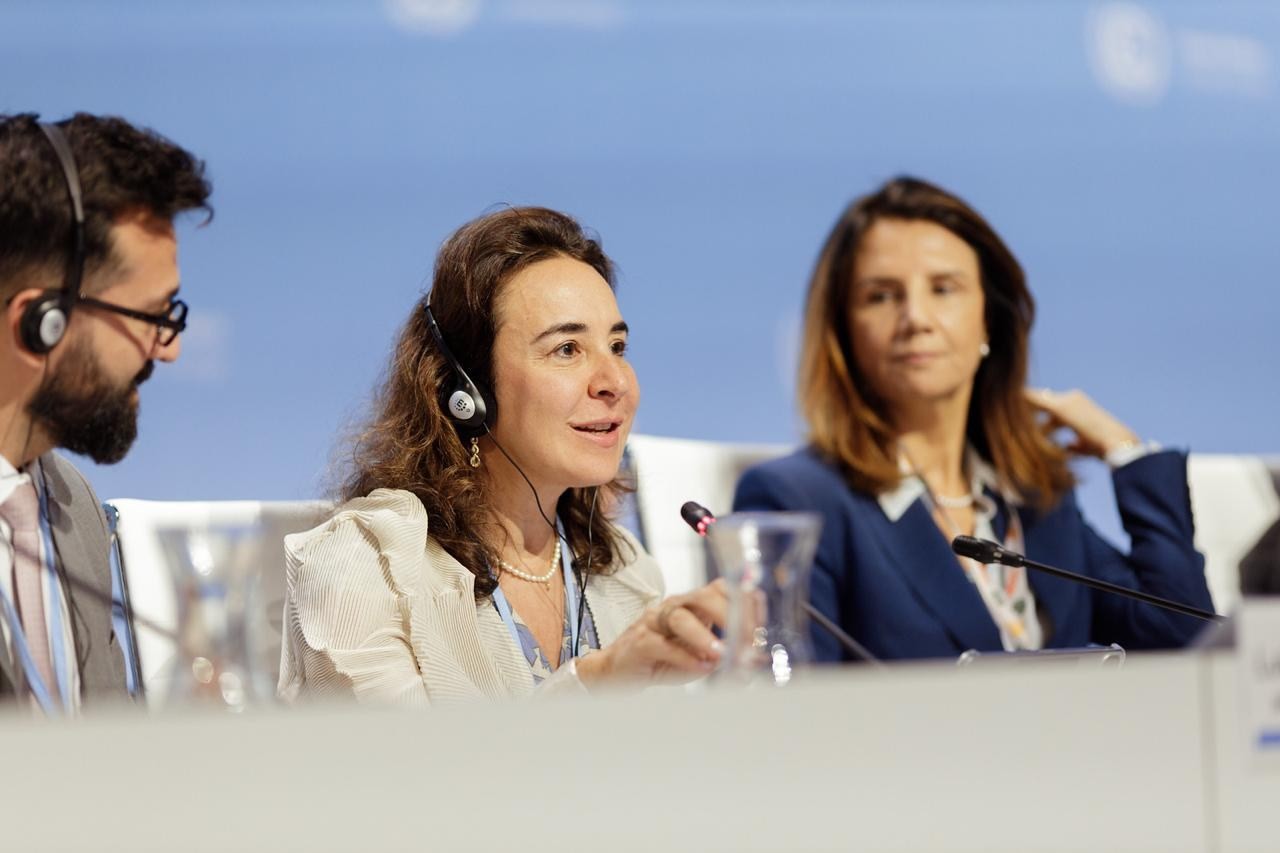Brasil presents climate finance roadmap in Bonn, setting the stage for COP30
Brasil today presented its "Baku to Belém Roadmap" for climate finance in Bonn, Germany, aiming to bridge the discussions from COP29 to COP30. The plan, unveiled in Bonn, Germany, emphasizes urgency, concrete political decisions, and a focus on developing nations

Por Mara Karina Sousa-Silva | marakarina.silva@presidencia.gov.br
A roadmap to secure climate finance, spanning from the COP29 discussions in Azerbaijan to COP30 in Brasil, was presented for stakeholder consultation by Ambassador Tatiana Rosito of Brasil's Ministry of Finance. The proposal was shared with the UNFCCC (United Nations Climate Change Secretariat) on Thursday, June 19, in Bonn, Germany. The Baku to Belém Roadmap is a key priority at the event, which serves as the primary preparatory meeting for the upcoming conference under Brasil's mandate.
Representing Fernando Haddad, Brasil's Minister of Finance and leader of the COP30 Finance Ministers' Circle, Rosito highlighted that most delegations acknowledge the initiative's importance. She stressed that the roadmap must be "clear, credible, and actionable" to support nations seeking finance for climate action.
The ambassador underscored the parties' support for integrating the climate agenda into countries' macroeconomic policies. This integration is crucial for the effective implementation of COP decisions and for ensuring the decisions benefit all of society.
"This roadmap is a framework to build pathways for mobilizing USD 1.3 trillion in climate finance," Rosito explained. "Our goal is to produce a clear, credible, and actionable report that will serve as a guide for the future implementation of decisions that, in many cases, depend on finance ministers."
Ana Toni, CEO of COP30, noted that other dialogues with stakeholders this week also highlighted the Roadmap's importance, offering concrete suggestions to refine Brasil's leading proposal. "It will be an important step to reformulate the global financial architecture and mobilize resources. We also need to secure other economic instruments to meet needs. Developing countries need both energy transition and financing to preserve forests, oceans, and other natural resources," Toni said.
Simon Stiell, UNFCCC Executive Secretary, emphasized the importance of climate finance in addressing the climate crisis. He noted that the agenda extends beyond discussions of numbers and deadlines. Rather, it serves as a credibility test to determine if the process of reaching USD 1.3 trillion by 2035 will provide sufficient resources for climate action in developing countries.
"You bring the innovation, the urgency, and the perspective needed to ensure this process delivers both ambition and implementation," Stiell said, urging parties to contribute to the proposal. "We have a clear goal: scale up financing. We know what is needed: expand public finance, especially grants and non-debt instruments, simplify access, and leverage strategic capital at scale. But now, we need to go further, moving from contributions to action. That is what will give this roadmap real traction, both politically and practically."
To guide contributions, Ambassador Rosito detailed the action plan's pillars developed by the Finance Ministers' Circle, which already comprises 32 countries. This endeavor combines political urgency with essential technical reforms to advance the agenda. The work began during the Spring Meetings of the International Monetary Fund (IMF) in April and is expected to be finalized and presented by the annual meeting in October.
Reforming banks and providing grants
According to Rosito, the first pillar directly addresses the fundamental issue: the structure of Multilateral Development Banks (MDBs), such as the World Bank and IMF. These institutions need to expand their lending capacity through balance sheet optimization and the strategic use of contingent capital. "We may not have seen an opportunity like this in the last 200 years," she remarked. The roadmap also advocates for expanding concessional financing for developing countries, particularly in areas of adaptation and addressing loss and damage.
Leaving no one behind
The ambassador further explained that the plan includes establishing national platforms (country platforms) designed to connect local projects with global investors. According to Rosito, the Circle will include actions in the plan to attract private capital with guarantees and reduced exchange rate risks.
Clear rules and urgency
In its final phase, the Circle will advocate for climate-related financial regulations, including carbon pricing mechanisms and robust oversight by Central Banks. "All priorities are interconnected and will be instrumental in mobilizing the USD 1.3 trillion," Tatiana Rosito concluded. "Our steadfast commitment is to deliver a structured document, complete with concrete recommendations and actionable examples. We rely on everyone’s support to ensure this process is inclusive and effective."
English Version: Trad. Bárbara Menezes.
Proofreading by Enrique Villamil.
